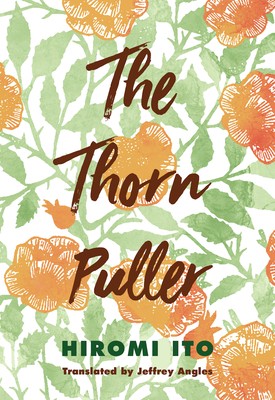
- We will send in 10–14 business days.
- Author: Hiromi Ito
- Publisher: Stone Bridge Press
- ISBN-10: 1737625326
- ISBN-13: 9781737625322
- Format: 14 x 21.6 x 2.1 cm, kieti viršeliai
- Language: English
- SAVE -10% with code: EXTRA
Reviews
Description
Winner of the Sakutaro Hagiwara Prize and the Murasaki Shikibu Prize
Introducing Hiromi Ito, an award-winning Japanese author who has been compared to Haruki Murakami and Yoko Tawada.
The first novel to appear in English by award-winning author Hiromi Ito explores the absurdities, complexities, and challenges experienced by a woman caring for her two families: her husband and daughters in California and her aging parents in Japan. As the narrator shuttles back and forth between these two starkly different cultures, she creates a powerful and entertaining narrative about what it means to live and die in a globalized society.
Ito has been described as a "shaman of poetry" because of her skill in allowing the voices of others to flow through her. Here she enriches her semi-autobiographical novel by channeling myriad voices drawn from Japanese folklore, poetry, literature, and pop culture. The result is a generic chimera-part poetry, part prose, part epic-a unique, transnational, polyvocal mode of storytelling. One throughline is a series of memories associated with the Buddhist bodhisattva Jizo, who helps to remove the "thorns" of human suffering.
EXTRA 10 % discount with code: EXTRA
The promotion ends in 23d.23:12:08
The discount code is valid when purchasing from 10 €. Discounts do not stack.
- Author: Hiromi Ito
- Publisher: Stone Bridge Press
- ISBN-10: 1737625326
- ISBN-13: 9781737625322
- Format: 14 x 21.6 x 2.1 cm, kieti viršeliai
- Language: English English
Winner of the Sakutaro Hagiwara Prize and the Murasaki Shikibu Prize
Introducing Hiromi Ito, an award-winning Japanese author who has been compared to Haruki Murakami and Yoko Tawada.
The first novel to appear in English by award-winning author Hiromi Ito explores the absurdities, complexities, and challenges experienced by a woman caring for her two families: her husband and daughters in California and her aging parents in Japan. As the narrator shuttles back and forth between these two starkly different cultures, she creates a powerful and entertaining narrative about what it means to live and die in a globalized society.
Ito has been described as a "shaman of poetry" because of her skill in allowing the voices of others to flow through her. Here she enriches her semi-autobiographical novel by channeling myriad voices drawn from Japanese folklore, poetry, literature, and pop culture. The result is a generic chimera-part poetry, part prose, part epic-a unique, transnational, polyvocal mode of storytelling. One throughline is a series of memories associated with the Buddhist bodhisattva Jizo, who helps to remove the "thorns" of human suffering.


Reviews